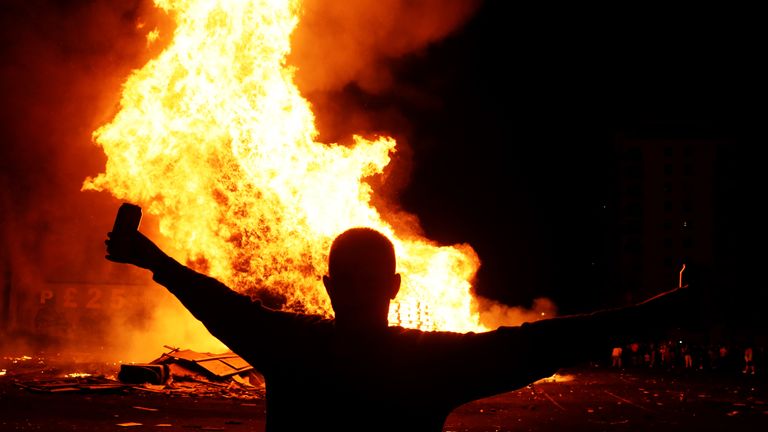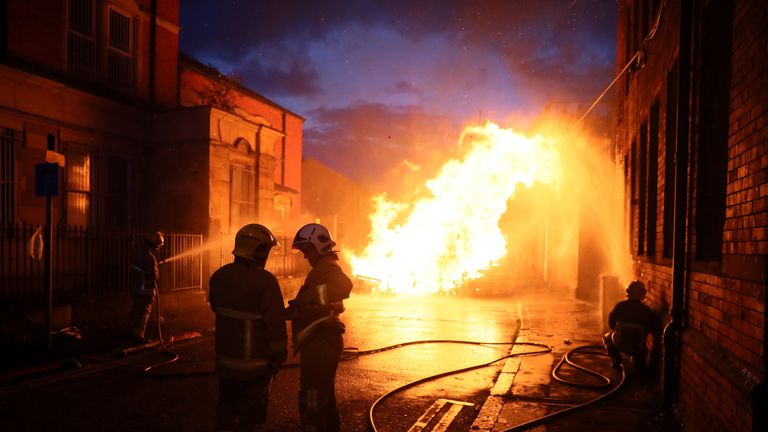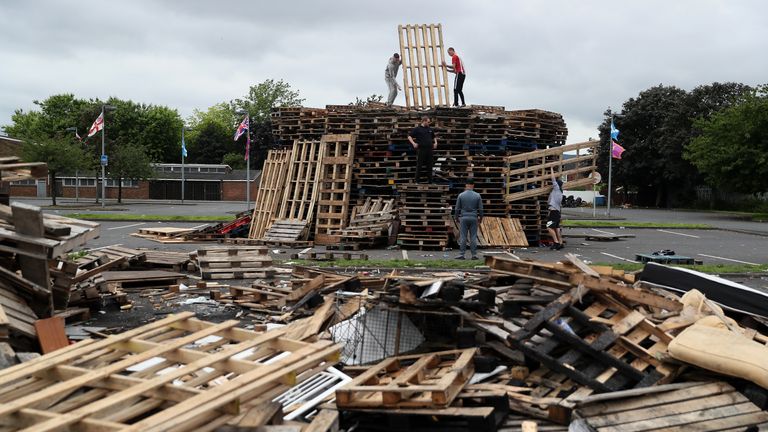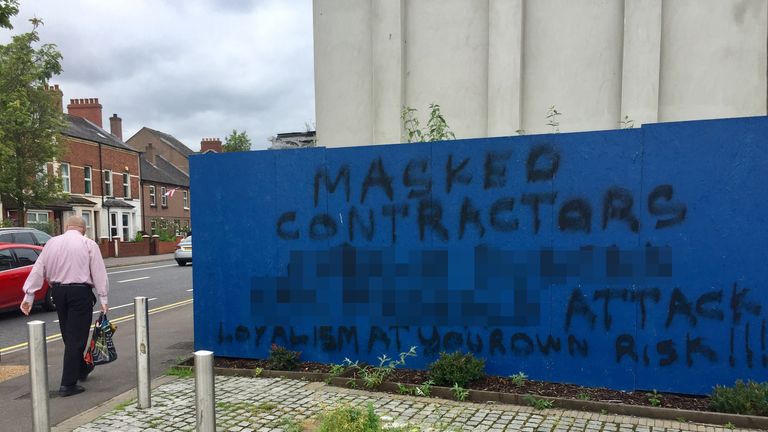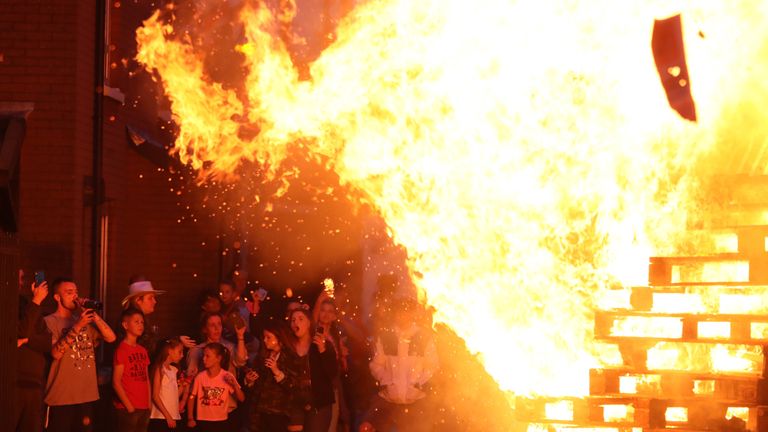Police accuse Northern Ireland loyalists of using women and children as human shields
Simon Byrne says paramilitaries made it hard for police to move in on a bonfire by putting a children's party in the way.
Saturday 13 July 2019 23:37, UK
Police in Northern Ireland have accused loyalist paramilitaries of using women and children as human shields to stop efforts to demolish a contentious bonfire.
Simon Byrne, Police Service of Northern Ireland's (PSNI) police chief, condemned what he called a "cynical ploy" by the east Belfast Ulster Volunteer Force (UVF), saying it was a factor in the force's ultimate decision not to move against the bonfire builders.
His comments come after ad hoc events were staged during the four-day stand-off with authorities over a bonfire built in the car park of Avoniel Leisure Centre.
The events included a party with bouncy castles inflated at the car park entrance and a rally where women formed a human chain around the fire.
On Thursday, councillors backed down over plans to demolish the bonfire.
After he was challenged on police handling of the situation, Mr Byrne said: "We have not walked away from this at all.
"Frankly what we saw the other day was a considered and cynical attempt to put us, the PSNI, into a dispute between communities.
"If you think an organisation that is prepared to put women and children in front of a bonfire in the expectation we are going to appear in large numbers in Land Rovers and go into that area and create chaos and mayhem, I think it was a really cynical ploy and I condemn it."
Asked about whether the presence of women and children had been a factor in decision-making, he said: "Absolutely, because if you put yourselves not just in my shoes but the front-line commanders, were you going to storm that leisure centre in an aggressive way with women and children in front of you?
"It was a cynical ploy to put us off the scent."
Belfast City Council abandoned an attempt to remove the structure when hired private contractors pulled out of the job when menacing graffiti threats were painted on walls near the site, purporting to identify them.
Loyalists manned the site 24 hours a day during the impasse, barricading the gates in anticipation of police moving in.
Police had been poised for deployment on two occasions during the week to escort contractors to the site, but plans were aborted at short notice because contractors pulled out both times.
Mr Byrne also talked about the alternative to no action, saying: "At the end of the day if we had stood here this morning, or on another day, where I was having to defend the actions perhaps of my officers who went in with public order equipment where there would probably have been large-scale disorder as we confronted a hostile crowd, you'd be condemning police action."
The council has asked the police to investigate how the details of the contractors were leaked.
Mr Byrne said there was nothing to indicate that the information had been leaked from the police. It is understood the police probe is centred on whether it came from within the council.
The Avoniel bonfire was lit on Thursday night, alongside scores of others across the region as loyalists ushered in the main date of the Protestant loyal order parading season - the Twelfth of July.
Although in previous years there has been violence, there have been no significant adverse incidents this year.
The group representing the bonfire builders, the East Belfast Cultural Collective, said it was "disappointed" by the "ludicrous" remarks of Mr Byrne.
They said: "The bonfire belonged to the community, largely women and children.
"The comments of the Chief Constable today insinuates that these persons should not have peacefully stood in defence of their culture, but rather should have went home and instead allowed the bonfire to become a battleground with men guarding it rather than those it actually belonged to, namely the women and children of Avoniel.
"That is a ludicrous position to take and if you pause to think about it, it is almost saying that the PSNI would have preferred men with bottles and bricks because kids with bouncy castles impeded them and ultimately prevented them implementing the aggressive wishes of a nationalist dominated council."
The Twelfth of July events mark the anniversary of the Battle of the Boyne in 1690, when Protestant King William defeated Catholic King James II in Co Meath, in what is now the Republic of Ireland.
Marching bands and loyal order lodges parade through the streets before congregating in fields to hear speeches and prayers from senior Orangemen of the Orange Order.





